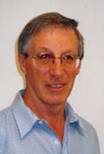David Treagust | SMEC 2008
Prof. David Treagust
Professor of Science Education in Science and Mathematics Education Centre at Curtin University in Perth

Biography
David Treagust is Professor of Science Education in the Science and Mathematics Education Centre at Curtin University in Perth, Western Australia. He taught secondary science for 10 years in schools in England and in Australia prior to working in universities in the USA and Australia.
David is the author of over 240 science education articles in refereed journals as well as several books and chapters in books and has presented over 250 papers at international and Australian conferences. His research interests are related to understanding students’ ideas about science concepts, especially chemistry concepts, how these ideas contribute to conceptual change and can be used to enhance the design of curricula and teachers’ classroom practice. David is a member of the Australian National Advisory Committee for PISA since 1998, was President of the National Association for Research in Science Teaching (1999-2001), and is currently Managing Director of the Australasian Science Education Research Association. He has experience teaching and consulting in a number of countries in South-East Asia and Europe.
Embedded, formative and diagnostic assessment in science to engender deeper conceptual understanding
Abstract:
Of great concern in many western nations is the reduced interest and low participation rates of students taking science, especially the more conceptually demanding calculus-based options in the last two years of secondary school that lead to university science and engineering courses. Indeed, the success, and even the continuation, of science programs in universities are dependent on foundational improvements in science education in secondary schools.
Science teachers can incorporate formative assessment as part of their teaching in such a way that they not only gain feedback about students’ progress but also provide information to students about their own progress in a non-threatening manner. In this presentation, I describe research using embedded assessment of various types that also includes a range of two-tier tests in science that help students question and understand the underlying science concepts. In the two-tier tests items, the first tier is a content response and the second tier is an explanation response. The items are designed so that alternative conceptions and scientifically acceptable responses are readily identified. Through this teaching and assessment, students are encouraged to think about the concepts and consider more appropriate explanations rather than memorise basic facts for a test or examination.
